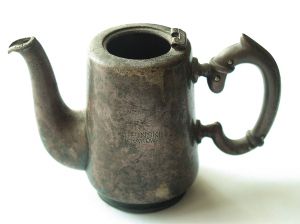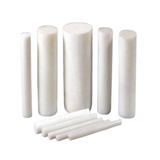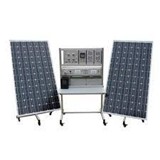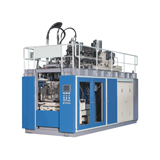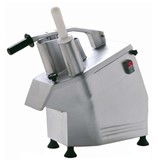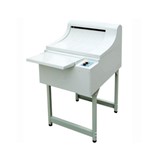In the 20th Century plastics containing organic chemical retardants became the preferred, anti-bacterial material.
Less than a century later those additives are now the subject of growing health and environment concerns, leading at least one local plastics processor to consider silver as an alternative biocide.
Sydney-based Anyshape Plastics is preparing to launch plastic products impregnated with silver ions-based anti-bacterial agents.
The company's business development manager Warren Sheldon told IndustrySearch that Anyshape had an exclusive distribution deal with a foreign silver additive supplier and the backing of a major multinational corporation, whose identity he was not at liberty to disclose.
"We secured the sole distribution contract for the additive for Australia, New Zealand and the Asia Pacific," Sheldon said.
He explained that Anyshape has already supplied silver ion computer keyboard covers to the ACT Health Department and is considering anti-microbial plastic clipboard clips for hospitals, mouth guard cases, infant drink bottle caps, and mouthpieces.
Confirming that the multi-national backer is not providing funding at this stage, Sheldon said Anyshape might turn to the government to assist with product development.
The company has previously accessed the NSW government backed Streamline program, which provided $1.3 million through the Environmental Trust to Parramatta and Auburn councils to assist local businesses implementing urban sustainability measures in their operations.
Anyshape's interest in silver comes as controversy brews around the widely used plastics anti-bacterial Triclosan.
In April this year the US Food and Drug Administration advised it was reviewing Triclosan's use in FDA regulated products.
The review's findings are to be made public in 2011.
In Europe, Triclosan has yet to receive European Union approval as an additive in certain plastics products.
Swiss-based Ciba Specialty Chemical told the European Commission in 2009: "The company does not consider the use of the substance in plastics intended to come into contact with food appropriate any more."
So do doubts surrounding Triclosan clear the way for silver as a viable alternative?
A 2005 study by specialist global consultancy Kline Group indicated silver-based micro-bacterial additives for plastics were one of the few bright spots in a sector stunted by mature markets.
"Annual consumption of silver-based biocides is expected to grow by more than 20% in Europe, 25% in the US, and nearly 15% in China, albeit from a small base in each case," the Kline Group report said.
"However, cultural factors and market nuances present significant challenges as well as opportunities to suppliers of these materials."
Kevin Roden, Regional Technical Manager Asia Pacific for Thor Specialties warned that cultural factors weren't the only obstacle for silver as a biocide.
"Silver also has had some bad press, particularly as nanosilver is one of the options," Roden said.
"Nano has a lot of scare mongering for cosmetic applications and nano silver gets included, and by silliness, silver is also getting included."
Roden also questioned silver's efficacy in the context of some of the claims made about it.
"The standard test allows 24 hour contact to kill organisms, so there's a good chance anything deposited will remain for some time," he said.

